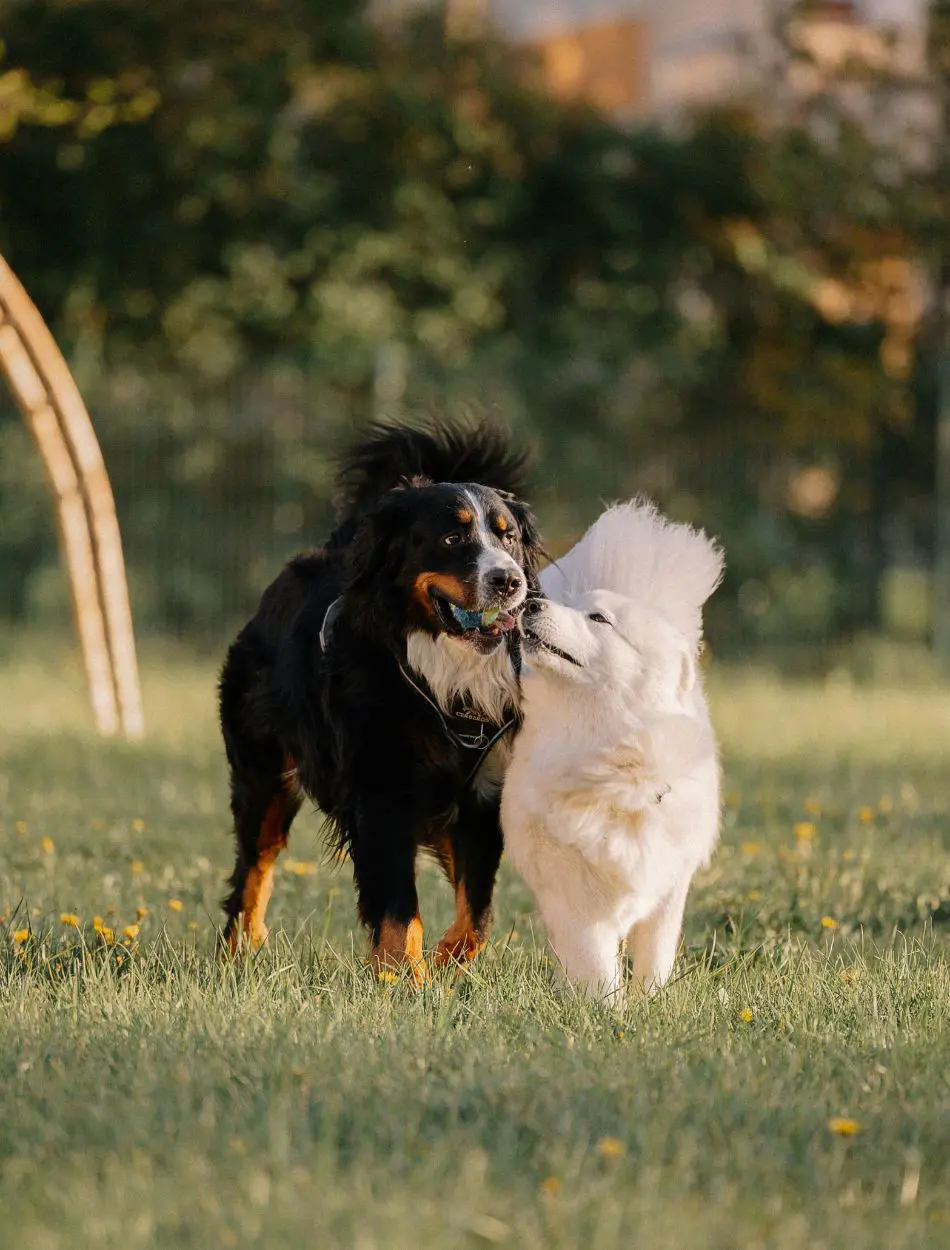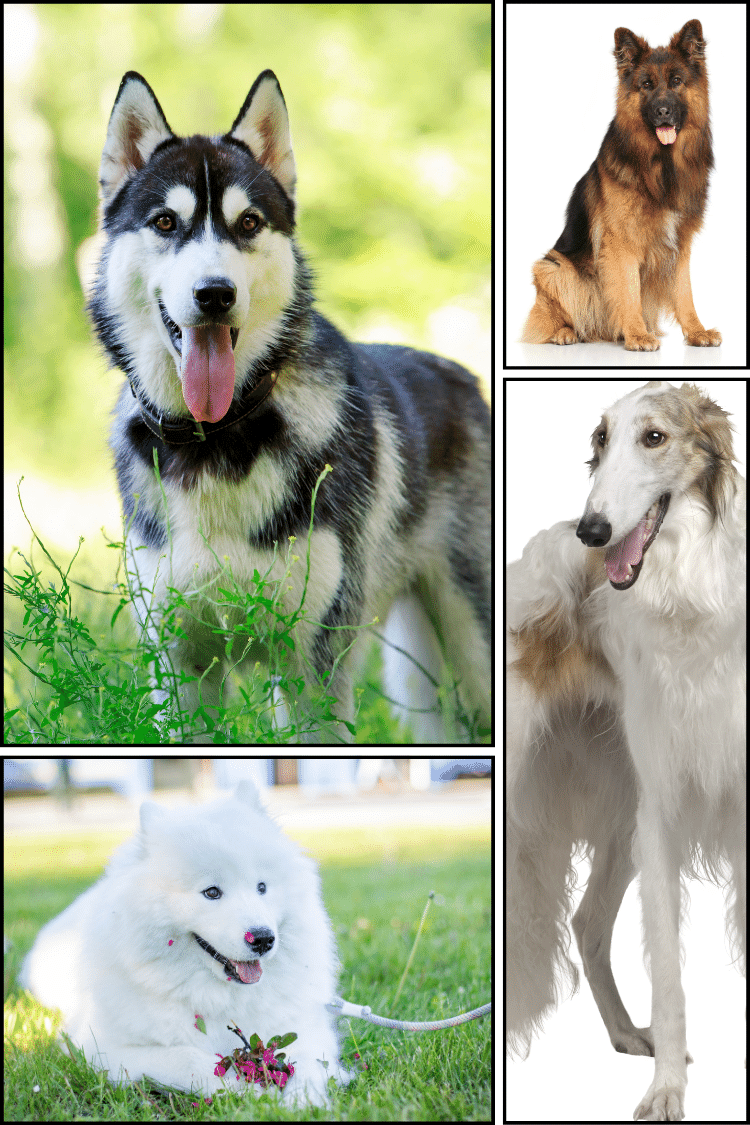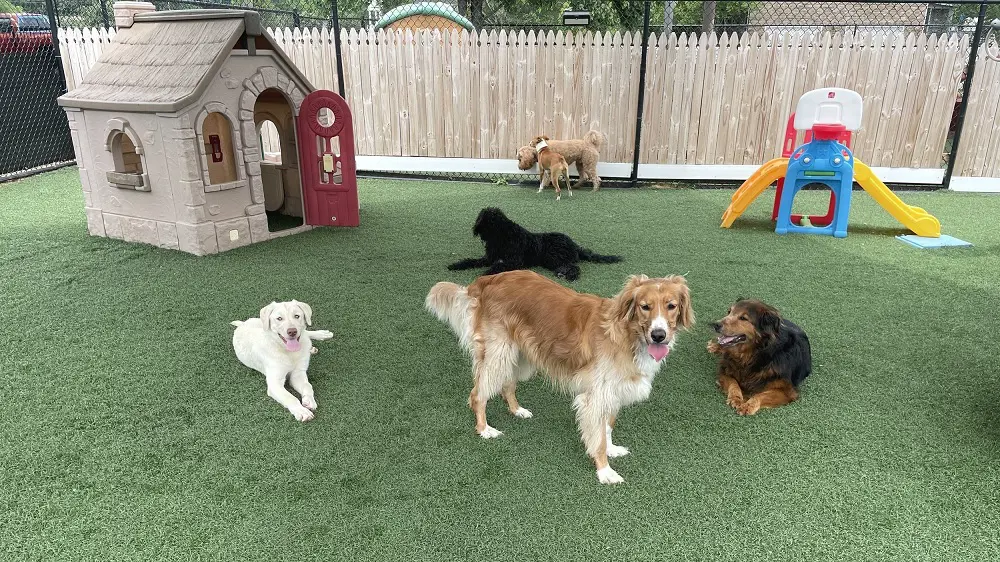18 Reasons Your Dog Is Not Barking

Barking is the language of dogs, but what happens when there is no barking? Generally, the alarm for most dog owners is when a normally vocal animal turns silent. Of course, there are far more reasons for your dog not to bark than health and environmental changes.
Below, we consider 18 possible reasons as to why your dog is not barking. As expected, each of these reasons relates to highly important information relative to behavior and health concerning your dog. Learn more about breed characteristics and the emotional factors that involve your quiet companion as you read along.
1. Your Dog Is Naturally Quiet

Some dogs aren't wired to bark, and breeds like the Basenji are somewhat famous for being mute. They will use a good amount of body language and little, quiet noises to display their communication. That's normal and isn't a problem at all, it's just their personality.
Your doggy might have something to say, but not by barking. Some dogs are quiet by nature and talk with their bodies. Here, you should not have a problem since your dog is just shier than others are.
They might rely more on tail wagging, ear movements, or even eye contact to convey the message. If your dog is otherwise well-adjusted, and these other signals collaborate with him, then there's nothing to worry about just speaking his language.
2. Lack Of Stimulus
Dogs bark due to excitement, and without the stimulus around them that provokes any reaction, your dog will keep quiet. Thus, with a silent home, having fewer sounds or no such chaos, the barking will be less.
The reaction doesn't point toward any defectiveness instead, it reflects on the surroundings. Here, silence means contentment, where your dog finds no need to respond to anything. They are just comfortable and at ease.
Without external triggers, your dog may be perfectly happy relaxing in their environment. You can see their body language and behavior to ensure they are content. The absence of barking could be a sign that your dog feels safe and calm and has no reason to express concern or alarm.
3. Breed Characteristics

Some dog breeds just aren't as big of barkers. Italian Greyhounds or Shih Tzus are quiet breeds of dogs while the Beagles are very chatty breeds of dogs. Perhaps you have one of those breeds of dog.
This is due to genetics and also to temperament and not some inability. Knowing his breed is helpful to know natural tendencies. Less barking does not equate to less happiness.
Different breeds have different energy levels and temperaments, which influence their vocal tendencies. Researching your dog’s breed will give you insight into what is normal for them. For example, while some dogs bark to alert or guard, others may prefer calm observation.
4. Earlier Training
Training has a lot to do with how much your dog barks, too. Dogs that have been trained to keep silent during certain conditions do so. If your dog has gone through such training, its silences are probably out of that training.
It can be positively reinforced not to make any noise-meaning a well-trained dog would bark only when necessary or upon some kind of cue. Your dog, in that respect, is just doing her job.
Sometimes, silence is a direct result of good training. If you’ve conditioned your dog to behave quietly in specific situations, their silence might be intentional. Training, especially with positive reinforcement, often results in a calm, well-behaved dog that only vocalizes when proper command is given.
5. Anxiety Or Fear

Terrified or anxious dogs will also fail to bark, and scared dogs will just stick to one position or remain silent. This could be a coping mechanism if your dog happens to be traumatized over something.
In these situations, barking can be considered too dangerous or too much of a hassle. This sort of condition can also be a learned one through experience. Anxiety in dogs can be categorized when you relate to the animal's feelings.
If you suspect anxiety, try to identify possible triggers. Loud noises, new environments, or unfamiliar people can cause fear in dogs. In such cases, providing a calm, supportive space or seeking advice from a veterinarian or behaviorist might be necessary.
6. Aging And Health Problems
Due to old age, health issues such as dog cognitive decline, hearing loss in senior dogs, or any form of pain can make them so much quieter. The energy that subjected these aging dogs to much barking has been lost.
Other medical issues, such as arthritis, can make it physically painful for them to bark. There may be many physical and cognitive changes with aging, and you may see a reduction not only in barking but in overall activity as your dog gets older.
If your senior is no longer barking, now would seem to be a good time to see a veterinarian. Regular check-ups with your veterinarian will keep you informed whether there is any issue related to the health of your pet that may be causing such behavioral changes.
7. Respiratory Problems

Dogs with problems in the respiratory system become somewhat reserved while barking, and avoid the pain associated with barking. If labored breathing or coughing goes with your dog's silence, then it is time for a visit to the vet, and respiratory problems can impede your dog's ability to bark at all.
Respiratory diseases can be quite critical since some make breathing and even changes in one's voice, different. Usually in most instances, diseases such as kennel cough or bronchitis may irritate the throat where barking becomes painful.
If you also feel other symptoms going with the loss of barking such as wheezing, coughing, or depression, consult the veterinarian as soon as possible.
8. Vocal Cord Damage
These might affect the vocal cords in your dog's body and will significantly affect barking. Incidentally, if your dog sounds hoarse and weak, well, that might be one problem associated with the vocal cords.
Those with damaged vocal cords have a hoarse-sounding or no bark at all. If it were to happen quite suddenly, then it would be best if your vet could check out the condition since this can often be treated depending on the cause of such damage.
This can be due to trauma, infection, or even surgical procedures. Some dogs undergo surgery that rectifies their breathing problem but results in temporarily or permanently altering their barking capabilities. After a lot of rest and medication, the vocal cords are restored to return your dog's voice.
9. Lack Of Socialization

The poorly socialized dog simply may not know if this is a situation in which he needs to bark. Socialization might give dogs an idea about what can be expected in any given environment and sometimes even give them the confidence to vocalize about what they are missing without said socialization.
This most definitely applies to rescue dogs who may or may not have been socialized around lots of people and/or animals and may be shy because they're unsure. Sometimes a slow introduction to the new environment will give them enough confidence to lift their voice.
Such dogs, never being socialized about various situations, may also lack the confidence to bark or may not know where to bark. In such cases, they may be socialized gradually by exposing them to other dogs or new environments for their confidence-building schedule.
10. Depression
Dogs do get depressed just like human beings, and an a-depressed dog may not even bark. Major changes, including the loss of a companion, can strike the emotional state of a dog. Here, silence is a symptom of retreat and depression.
If he acts dull or disinterested in all his favorite things, consult a veterinarian, and they will guide you through whether your dog is suffering from depression. Depression may be manifested in dogs as loss of appetite, lethargy, and retreating into silence.
Your dog may suddenly turn quiet and aloof if he or she has recently experienced a traumatic event, such as the death of a companion or any drastic change in his or her routine. Keeping them stimulated mentally and supported emotionally will help them come out of that depression.
11. Loss of Confidence

The timid dog can be so shy that it can't even utter a bark, and dogs that doubt either the world or themselves do not peep a word. Thus, they avoid unnecessary attention and will not disturb other animals.
It is possible that, with positive reinforcement taken in to gain confidence, it might get them talking. After some time, when they have gained a comfortable position, they can start voicing a few barks. It is in this time-consuming process that they find their voice.
Dogs that are not confident enough may not even want to bark. The confidence in the dogs will build up only through persistent training, encouragement, and reward. They will be confident enough, only when they are comfortable with their surroundings.
12. Fatigue
A dog that has been too exhausted from all the playing or running may be too exhausted even to bark. This is mostly seen after long walks or after extremely playful sessions.
At such times, when they are resting or recuperating, they may just want to be left alone. Fatigue among dogs is very common, of course, and nothing to call home about on most occasions, till they are rested again, they can revert well to barking.
If your dog has had an extremely active day, that might be the reason your dog is too tired to bark. If you give them some time to recover, the regular barking habit returns when they get their energy back.
13. Pain Or Discomfort

Injured or sick dogs do not even bark, perhaps they are hurt, and pain may range from arthritis to dental pain. Pain, injury, or an underlying condition can make barking painful for your dog too.
If your dog is quieter than usual, doesn't want to move around, or doesn't feel like eating, and when you see that dog stops barking as usual, then he already shows pain signs that need treatment from a veterinarian. Treating the source of their pain will most likely restore their normal barking behavior.
14. Neurological Problems
Neurological disorders can impede a dog's ability to bark, and certain diseases of the nerves or brain can make a dog change the pattern of his barking. It can be quite complex and might disrupt a dog's ability to be in control of their vocal cords or other functions of the body.
If your dog suddenly stops barking but also presents symptoms concerning uncoordinated movement, confusion, or seizures, please consult your veterinarian at once. Early intervention might help manage such conditions better and improve the quality of life for your dog.
Failure to bark and failure to coordinate amongst other symptoms should be presented for consultation by a veterinarian. Neurological conditions have their particular form of treatment. Early diagnosis allows for any form of management of these complex issues.
15. Hormonal Imbalance

Hormonal abnormalities have behavioral manifestations among them is altered vocalization. Low levels of the thyroid hormone may make the dog lethargic and less vocal. Abnormally quiet dogs could, therefore, be showing some underlying condition.
A veterinarian should, therefore, be in a position to run several tests capable of confirming hormonal imbalance as the cause. This kind of treatment often tends to revive such energy and barking patterns. Your dog's body has a change in hormonal balance that makes him different in energy and behavior.
Hypothyroidism makes your usually active dog lazy. He may also put on extra pounds and bark less often than usual. This is normally cured by replacing the deficient hormone, and your dog often tends to be active again and also becomes as vocal as before.
16. Changes Due To Age
Changes within a dog's behavioral setup can make an older dog less apt to bark. For instance, their senses start dulling while growing older, and they stop reacting to those things that usually would fire off an alarm.
Apart from this, there could be ailments related to aging dogs, such as cognitive dysfunction syndrome, and some sort of canine dementia which could be linked with confusion and changed behavior. This factor of age often slows dogs down in most of their activities, including barking.
Though this might be a natural process in their aging cycle, it is always good to see other symptoms showing health problems. This is where the veterinarian can give an overview of their condition and also can suggest ways in which you can make your aging dog comfortable and happy.
17. Distraction Or Preoccupation

Sometimes, dogs have all their attention elsewhere and may just be too busy to bark. When your dog is deep into something, for instance, chewing up a toy, following a new smell, or watching something intently, they don't feel the urge to vocalize at that moment.
Another scenario could be when they are having fun playing, or perhaps a mental stimulation activity like working on a puzzle toy. Preoccupation with something interesting can lead to temporary silence, as the dog becomes absorbed in the activity at hand.
Provided your dog is otherwise healthy and showing normal behavior, the quietness from time to time because of distraction is not a cause for alarm, it just means they are deeply engrossed in something that has grasped their attention.
18. Medication
Preexisting medications can affect a dog's behavior, including barking, such as sedatives, pain medications, or anxiety medications that make the dog drowsy or relaxed, reducing the urge to bark. Some dogs' voices quieten down, as the consumption of a new medication may turn out to be one of the side effects brought about by the medicine.
Medications that act on the nervous system or act as a sedative can depress the dog's vocalization. If your dog is on some form of medication and has grown much quieter, this might be a short-term effect of the drugs.
If you suspect that the cause is medication, it would be best to consult with your veterinarian as to a possible modification in dosage or other alternative medications that will minimize suppressing your dog from barking.
Top Lists






